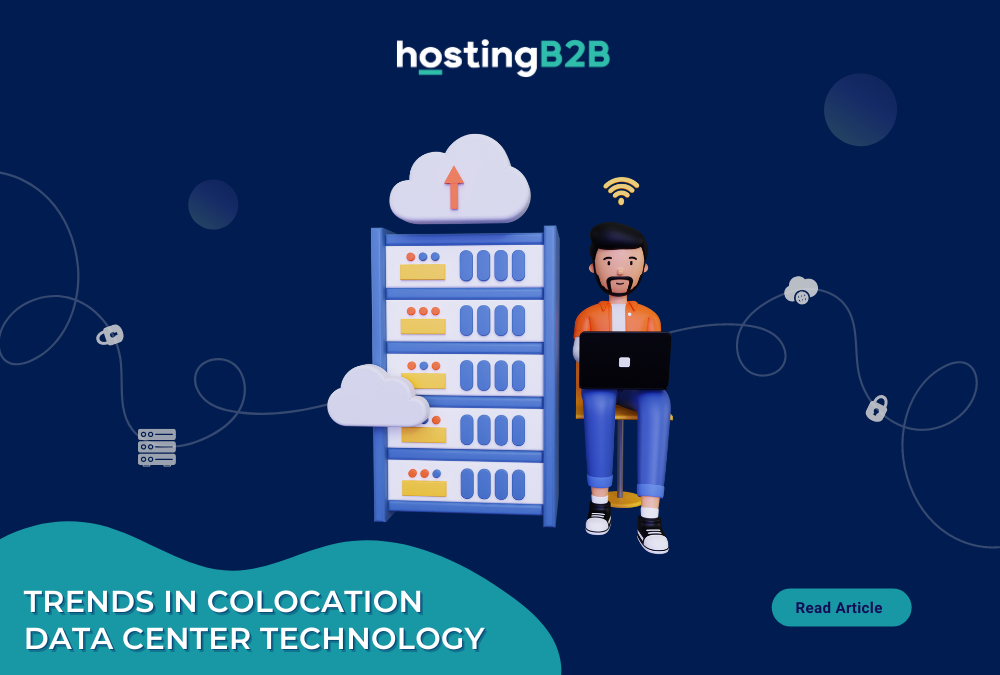Table of Contents
In today’s digital age, data is the lifeblood of businesses. With the increasing amount of data being generated and stored, the demand for reliable and secure data centers is on the rise. Colocation data centers have emerged as a popular solution for businesses looking to outsource their data storage and management needs. In this article, we will explore the latest trends in colocation data center technology and how they are shaping the future of data management.
The Rise of Colocation Data Centers
What is a Colocation Data Center?
A colocation data center allows businesses to rent space for their servers and other computing equipment. These centers provide the necessary infrastructure, such as power, cooling, and security, to store and manage data. Colocation data centers offer a cost-effective solution for businesses that lack the resources to build and maintain their own facilities.
Why are Colocation Data Centers Gaining Popularity?
There are several reasons why colocation data centers are becoming increasingly popular among businesses:
- Cost Savings: Building and maintaining a data center can be a costly endeavor. By using a colocation data center, businesses can save on the upfront costs of building a data center and the ongoing expenses of maintenance and upgrades.
- Reliability and Security: Colocation data centers are designed to provide a secure and reliable environment for data storage. These facilities have advanced security measures in place, such as biometric access controls and 24/7 monitoring, to protect against data breaches and other security threats.
- Scalability: As businesses grow, their data storage needs also increase. Colocation data centers offer the flexibility to scale up or down as needed, without the hassle and expense of building or expanding a data center.
Trends in Colocation Data Center Technology
Network Connectivity
One key trend in colocation data center technology is the focus on network connectivity. With the rise of cloud computing and the Internet of Things (IoT), businesses increasingly rely on fast and reliable network connections. Colocation data centers respond to this demand by offering high-speed, low-latency network connectivity options.
Some colocation data centers also invest in software-defined networking (SDN) technology, enabling more efficient and flexible network management. SDN allows businesses to control their network traffic and prioritize certain applications or services, improving overall network performance.
Edge Computing
Edge computing is shaping the future of colocation data centers by processing data closer to the source. This approach reduces latency and improves the performance of applications and services that require real-time data processing.
Colocation data centers are well-positioned to support edge computing, as they have a network of facilities in different locations. This allows businesses to store and process data closer to their end-users, improving the user experience and reducing network congestion.
Green Data Centers
As the demand for data centers continues to grow, so does their energy consumption. To address this issue, colocation data centers are increasingly adopting green technologies to reduce their environmental impact and lower operating costs.
Some of the green technologies being implemented in colocation data centers include:
-
Many colocation data centers invest in renewable energy sources, such as solar and wind power, to reduce reliance on traditional energy.
- Colocation data centers are adopting more efficient cooling systems to reduce energy consumption, such as liquid cooling and hot aisle containment.
- Energy Management Software: Energy management software is being used to monitor and optimize energy usage in data centers. This technology can identify areas where energy is being wasted and make adjustments to improve efficiency.
Hybrid Cloud Solutions
Hybrid cloud solutions, which combine public and private cloud environments, are gaining popularity among businesses. Colocation data centers are well-suited to support hybrid cloud solutions, as they offer the necessary infrastructure and connectivity for businesses to seamlessly integrate their on-premises systems with public cloud services.
By using a hybrid cloud solution, businesses can take advantage of the scalability and cost savings of the public cloud while maintaining control over their sensitive data in a private cloud environment.
Why Colocation Beats Public Cloud for Data Management and Security
When deciding between colocation and public cloud hosting, businesses often wonder which option offers the best benefits. Colocation data centers provide enhanced security, control, and cost-efficiency, which are critical for businesses with sensitive data or compliance requirements. To learn more about why colocation may be the smarter choice over public cloud hosting, check out our detailed article, Why Use Colocation Instead of Public Cloud? and discover how colocation could be the ideal solution for your business’s needs.
Conclusion
Colocation data centers offer a cost-effective and reliable solution for businesses looking to outsource data storage and management. With the latest trends in colocation data center technology, these facilities are becoming more attractive to businesses of all sizes. Partnering with a reputable colocation data center provider ensures the security, scalability, and efficiency of data management processes.
If you’re ready to elevate your business’s data management strategy with secure, scalable, and cutting-edge solutions, we’ve got you covered. Our state-of-the-art colocation data centers meet the growing demands of the digital age, providing reliability, security, and flexibility. From advanced network connectivity to green technologies and hybrid cloud solutions, we provide services tailored to your needs. Don’t let data challenges hold you back—visit our website today to learn how HostingB2B can transform your business.
The post Trends in Colocation Data Center Technology appeared first on HostingB2B.





